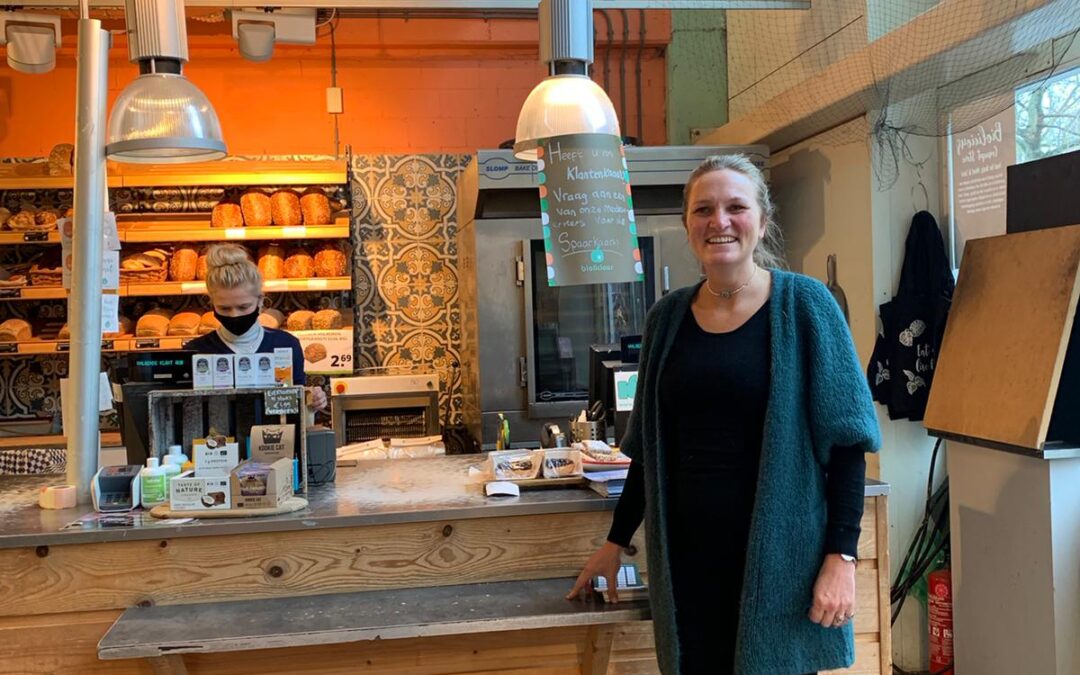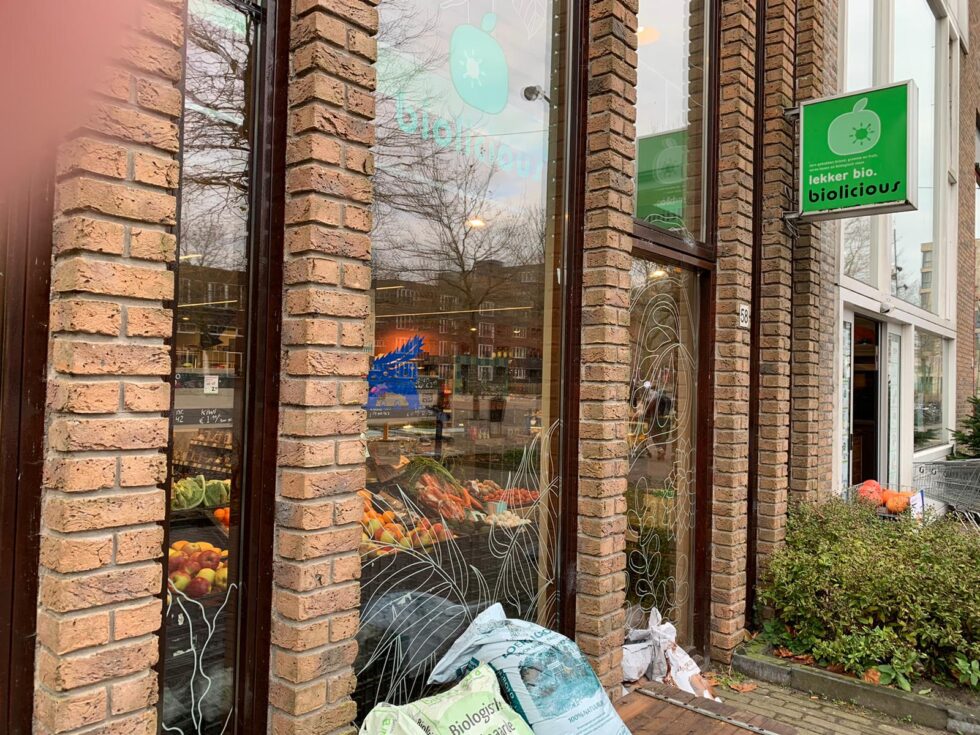
The local entrepreneur: where idealism and commerce go hand in hand
Across the street from the Biolicious store on IJburg, banners are hanging from houses on which one can just read: ‘Give time and space to….’ the rest of the text has been blown away. It’s a bleak day, but inside Biolicious is warm, the staff welcoming and oh, what a wonderful smell of fresh bread. Customers trickle in; people are standing in front of the façade having a chat.
Idealist or entrepreneur?
ADI speaks with Pien Thate. Together with her husband Maurice, Pien owns Biolicious, a small business of two organic specialty stores. “Around 2005, those were still a bit dusty stores of people who were too much idealist and not enough entrepreneur. At that time, the government was looking for people with entrepreneurial blood who wanted to get into bio.” Pien and Maurice were clear in what they could do differently and better and started an organic shop. They have since grown to two beautiful, flavorful organic stores.
 Now, was it more entrepreneurial spirit or idealism to start such a store? “Actually, it’s a combination of both,” says Pien. “If you are too idealistic then it won’t become anything. So you really have to have entrepreneurial qualities and be commercial to roll this out, especially in Amsterdam with the high rents and stiff competition. With idealism alone you’re not going to make it.”
Now, was it more entrepreneurial spirit or idealism to start such a store? “Actually, it’s a combination of both,” says Pien. “If you are too idealistic then it won’t become anything. So you really have to have entrepreneurial qualities and be commercial to roll this out, especially in Amsterdam with the high rents and stiff competition. With idealism alone you’re not going to make it.”
Seizing the right moment
In addition to Biolicious, Pien also puts her heart and soul into her company Werkenwerkt, which inspires fellow entrepreneurs to think about their social role and encourages them to hire people with a distance to the labor market. Then we are talking, for example, about young people at risk of going down the criminal path. “That life in crime is quite romanticized in series, but in reality it produces a lot of stress. You always have to look back. There comes a time when these young people can still make a choice to earn money in a legal way, to build a bright future. Especially then you have to get them to work. I often hear that these young people don’t want to work at all. That’s not true, it’s absolute nonsense. They just want to work, but they have to be ready and motivated for it. After all, the money is not quick, but it is earned honestly.”
Pien tracks down these young people through street coaches and the district, for example. They ask if they can place someone with, say, an ankle bracelet who needs to reenter society. They are certainly no sweethearts and often find themselves with huge debts. We need to do something about that as a society, Pien believes. “Those debts make them stick around in the criminal circuit. But what you want is for them to get to work, get rid of those fines and start building themselves again. If you can offer them a job then you’ve already largely solved the problem.”
Not pampering, but working
In doing so, Pien looks with some surprise at how it works in the Netherlands; her experience is that a lot goes wrong in the system. “In the Netherlands it’s often ‘patching things up’. I find it very sad that those boys then pay the bill for that. We have to realize that those young people often had a terrible childhood. I’m not saying you can use that as an excuse for the rest of your life, absolutely not, I’m not like that. They can choose to continue to be pampered by the system and go along with that. I am actually committed to giving them a fair chance by helping them get a job. I can open the door for them to my fellow entrepreneurs.”
When asked whether her colleagues are waiting for employees with a certain background, Pien replied very firmly.
“I speak to a lot of local business owners. I think their hearts are many times bigger than many people think. Mistakenly, they are often portrayed as ‘grabbers’ and that does not conform to reality. Of course entrepreneurs think commercially and economically, otherwise nothing will come of their business. That does not mean they are not idealistic and committed to society.”
Keep it lighthearted
What does it take for a small business owner to deal with this target group? Pien: “Actually, nothing special. It’s about giving respect and dignity, just like everyone else. Respect has to be earned, which goes for everyone. If you don’t treat me correctly, should I respect you? No, it doesn’t work that way. The dignity with which we treat everyone is essential. We want everyone to participate. I believe very much: every day is a new day where you can make new choices, what happened yesterday does not interest me. It’s about what you choose to do today.”
In small, family-run businesses, personal contact with employees is the norm, and that’s important. Pien: “You’re on the shop floor together. You talk together, know about each other. As an employer, it’s important that you look closely at your people. People can tell you a lot. If you see that things are not going well for a while, you take a moment to ask how things are going. But don’t make it too heavy. In the workplace it has to be nice and light, and a lot of humor is needed. That also helps people forget the heaviness in their heads and their troubles. It gives air to put things in perspective, keep things small.”
Not talking, but doing
Asked what the small business owners’ relationship is with the City of Amsterdam, Pien identifies that there is a difference in thinking. “What I have a hard time with is that the municipality identifies problems and then discusses them. We entrepreneurs look at what the problem is and then go and do something about it. An entrepreneur is always in ‘doing.’ If I keep dwelling on the problems I face every day and don’t act, I could shut down my business. I want to solve, not keep feeding the problems.”
“The contribution of the small economy to the city is huge, but the municipality does not have us in the picture. As Amsterdam, it’s best to be more appreciative of your local economy. We contribute much more than what is in the limelight. It would be nice if the municipality would look for the beautiful stories of the city. Because this is what gives color to the city.”
Across from Biolicious on IJburg, the text on the banners reflects what it is all about: giving time and space…….
